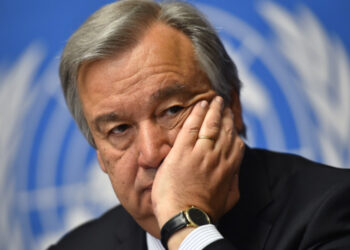There are clear connections between food systems, human diets, human health, and the climate crisis. Agriculture uses 37 percent of the earth’s land and 70 percent of its freshwater supply. Furthermore, agriculture, including forestry, is responsible for 24 percent of greenhouse gas emissions.
The process of producing the food we eat has harmful environmental impacts that ultimately hurt us all. In this regard, animal-based foods are generally a lot more resource intensive and environmentally impactful than plant-based foods.
In 2009, for instance, the production of animal-based foods accounted for more than 75 percent of global agricultural land use and about 67 percent of agriculture’s production-related greenhouse gas emissions, while contributing only 37 percent of the total protein consumed by humans.
In addition, because many animal-based foods rely on crops for feed, the increased demand for animal-based foods widens the food gap relative to the demand for plant-based foods.
Food Consumption in the United States
People in the United States love to eat meat in general and beef in particular. America is one of the world’s top four meat-eating nations, along with Australia, Brazil, and Uruguay.
The US’ meat consumption is 30 times higher than the bottom four meat-eating nations (Bangladesh, Ethiopia, India, and Sudan). Whereas the average Bangladeshi consumes 3 kilograms of meat per year, the average American consumes 124 kilograms per year!
It would be difficult to overstate the resource intensity and the accompanying negative environmental impacts that meat consumption gives rise to. To satisfy the demand, livestock animals presently consume 27 percent of the world’s calories. Beef production is particularly resource intensive because it requires 30 kilograms of grain to produce 1 kilogram of beef.
The problem is not just that Americans eat large quantities of meat. An equally salient issue is that many in other countries aspire to an American lifestyle, and hence the demand for meat is booming in the world’s middle- and high-income nations.
To keep up with demand, global meat production has increased four-fold since the 1960s. Looking to the future, the global demand for beef is projected to grow by 95 percent between 2006 and 2050, and the demand for animal-based foods more generally is expected to grow by 80 percent in the same period.
Meat Consumption and Production: Unsustainable and Inequitable
Animal-based foods are a salient part of people’s lives. In addition, animal-source foods provide nutrients missing in cereal-dominated diets, and they are also some of the best sources of nutrient-rich food for children aged 6 to 59 months.
Even so, from the standpoint of the earth’s environmental health and particularly the climate crisis, meat production and consumption at either present or projected future levels are unsustainable.
The consumption of meat is also deeply inequitable. Many people worldwide would like to consume more meat but they cannot afford to do so. In stark contrast with the US, millions in South Asia and Africa consume too little meat. Hence, unsurprisingly, these are also the parts of the world where people are greatly troubled with undernutrition.
Course Correction is Needed
To make food production and consumption sustainable, it will be necessary to address both supply and demand. As far as supply is concerned, the use of more efficient cattle breeds, mixed agriculture systems, and raising cattle with increased feed efficiency need to be increased, and large-scale industrial operations need to be limited. When it comes to demand, governments certainly have a role to play in setting policy to affect nutritional and environmental outcomes and thereby create healthier food environments.
Even so, as citizens of one of the world’s wealthiest and most powerful nations and given the adverse environmental impacts of excessive meat and particularly beef consumption, Americans need to ask themselves whether it is right to continue consuming disproportionate amounts of both meat and calories.
Americans and, more generally, citizens of the world’s wealthy nations would do well to recognize that even though it may seem like we have the right to decide what we eat, our food choices are not ours alone. They affect our health, the health of others, and perhaps most importantly, the health of the planet we all call home.
Disclaimer: The views and opinions expressed here are those of the author and do not necessarily reflect the editorial position of The Globe Post.





















